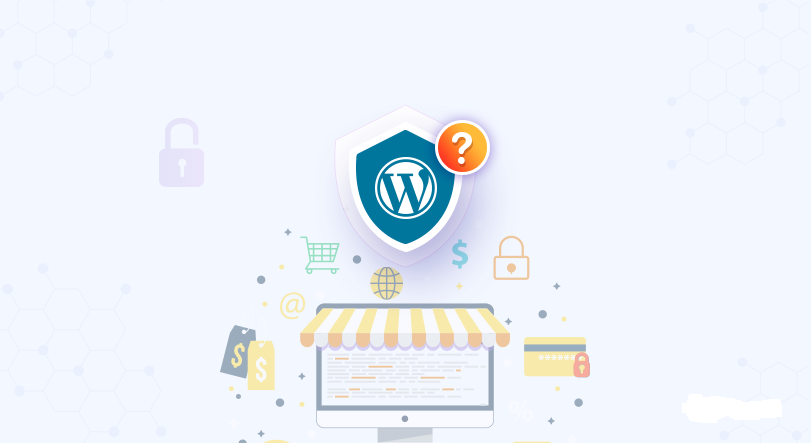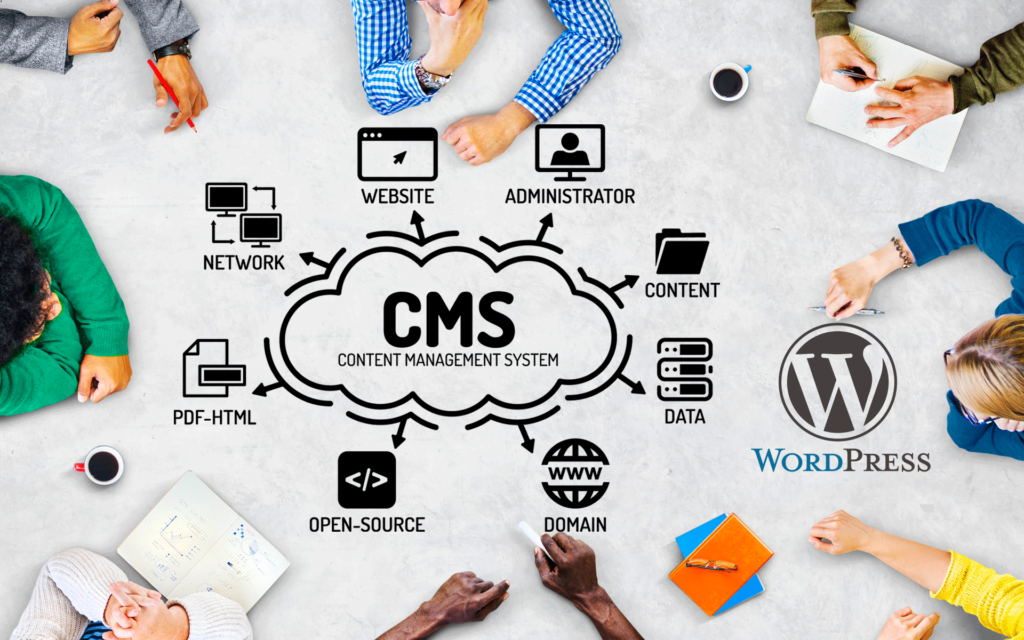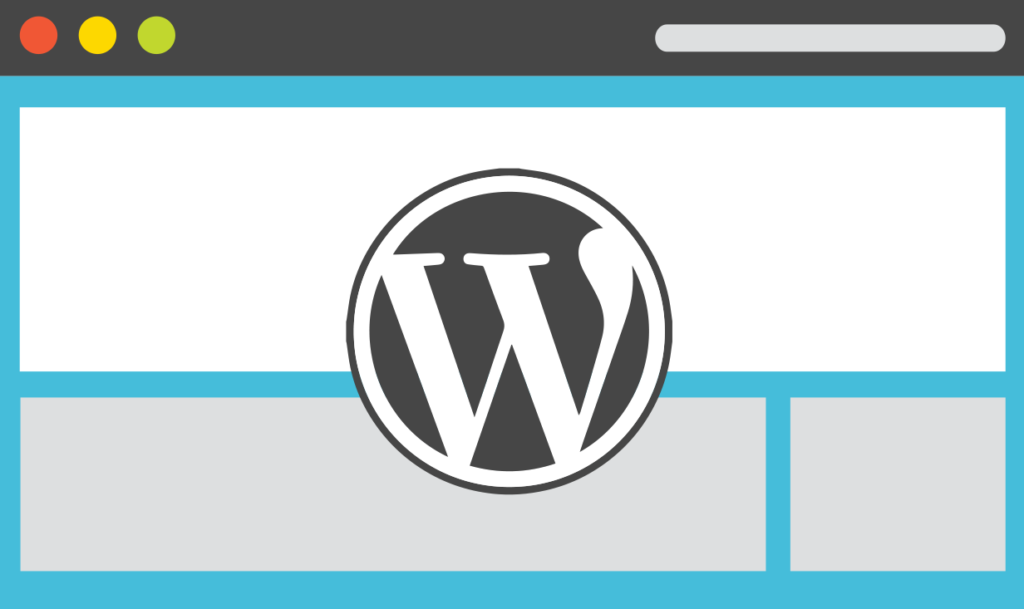
WordPress is one of the most popular content management systems in the enterprise space where cost and ease-of-use are less of a concern.
Large organizations have the money to spend on any CMS they want. With no shortage of developers and content strategists, they will choose WordPress rather than enterprise content management systems like Site core and Adobe Experience Manager.
WordPress is used for an estimated 25% of all websites. WordPress is malleable to the need of the user and it works great for sites large and small. Organizations choose WordPress because it is scalable, has a robust ecosystem and provides a quicker time-to-market than competing options. It has better security as well.
Just as important is the number of skilled WordPress support companies’ professionals like WPFixs. They are available to develop and manage WordPress sites, themes and plugins.
WordPress as an Enterprise Content Management System

At its core, WordPress is a content management system. It’s widely used by all-sized businesses to manage their websites and content. So, using it as an ECM –Enterprise Content Management system is by no means beyond the realm of possibility.
It would, however, mark an evolutionary leap for the software. Interestingly, the shift toward great enterprise-level use is already happening.
It’s this highly advanced ability to customize WordPress for any use, coupled with its user-friendly and familiar admin interface that makes it an ideal ECM platform.
Essentially, an ECM system helps companies to organize, manage and distribute unstructured content inventory. This includes documents, images, account records, surveys, product information, emails and websites.
Companies use this software to store, track, edit and collaborate on content creation and other information-related projects while maintaining predefined user roles and security levels.
Why Enterprise Organizations Choose WordPress?

Enterprise organizations have strict requirements and long vetting processes for the technology they deploy. They choose WordPress because it provides the security, performance and scalability required to build large sites.
The huge ecosystem of open source plugins and themes allows enterprise organizations to quickly access the functionality they need. Because WordPress is open source, large companies can verify the code of WordPress and any plugins they use.
In this article, we outline the features and capabilities of the software that is suitable for an enterprise while also exploring the benefits and challenges in more depth.
WordPress is Flexible and Affordable

WordPress’ early decision to make the platform extensible via plugins is at the heart of much of its success. It has enabled the core team to keep the bulk of the platform relatively streamlined while opening the door for entirely new industries to emerge.
This it has done by satisfying consumer demand in forming dedicated plugins. This is good news for enterprise administrators. They have complete control over what gets added to the base platform on their own installs. It allows small internal teams to move quickly in terms of prototyping and actual deployment.
Additionally, WordPress is an open-source CMS. This further contributes to its flexibility and functionality as anyone can contribute to the platform.
It also introduces the possibility for a variety of different software to integrate with WordPress which further expands its functionality. In short, WordPress has flexibility and functionality in spades including e-commerce sites and even multisite networks. WordPress practically does it all.
Made for Content

Content marketing is everything on the Internet these days. Almost no company on the web can do without publishing high-quality content. With its background as a blogging platform, that plays to WordPress’ strengths.
The CMS offers loads of features to make content creation as convenient as possible. This includes WordPress editor with its many options such as drafts, automatic scheduling, revisions and other features.
Aside from that, WordPress comes with a strong SEO game that is out of the box. Custom permalinks, optimized markup (depending on your theme) and other standard features make WordPress sites easily digestible for Google.
In addition to that, you have plugins for SEO, social media integration and every other tool you can think off to make your content-centric site a success.
WordPress is Secure
Foremost on many business manager’s minds is the security of their website and the protection of their customer’s data. This, of course, begs the question, is WP secure?
WordPress sites can be built to be airtight or could be designed with gaping holes in them. A good part of this question is answered in how you construct your site.
With that said, being open source (as WP is) has some advantages in terms of security. For example, the source code is peer-reviewed and if breaches or bugs exist, they tend to get discovered quickly.
Most security issues that occur on WordPress are due to poorly designed plugins or not following good security practices. Businesses can’t afford to have their site compromised. The good news is that WP is one of the most trustworthy CMS’s out there.
WordPress Support
Due to the open source nature of WordPress, there’s no single support staff behind the platform. This means that if you need professional support, upgrades or customizations, you can seek help in the Support Forum but also elsewhere.
Having several companies that specialize in a given service helps you as a customer. Since these companies are competing, there’s no monopoly. Customers have choices and can seek out development agencies that fit their needs rather than be pigeonholed into using just one vendor.
While enterprises might choose to work exclusively with an agency, many prefer to have in-house developers and also work with enterprise WordPress development service like WPFixs. This development service has specialized in developing a website for you and providing general support for your WordPress website.
WordPress like any other content management system platform has its setbacks. In fact, glaring limitations and obstacles prevent WordPress from being a truly perfect fit for enterprise companies, particularly those outside of the publishing industry.
One of these setbacks is:
Lack of Enterprise Support
Enterprises require round the clock support to ensure their digital presence is live, secure and performing well.
Despite WordPress having a vast community of development experts, there is no accountability or warranty for its performance.
Also, there is no way to contact a dedicated support person during a crisis. With inconsistent documentation, enterprise businesses force their tech teams to troubleshoot on their own or find a costly third-party option to solve their issues.